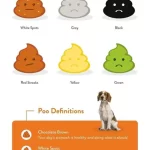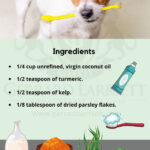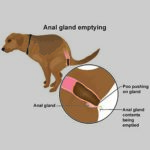Why Do Dogs Suck On Blankets
The Mysterious and Amusing Habit of Dogs Sucking on Blankets
Dogs are amazing creatures with many quirks and talents, from their acute sense of smell to their loyal devotion to their human companions. Yet one behavior that often puzzles and amuses dog owners is the tendency of some dogs to suck on blankets, pillows, or other soft objects. Why do dogs do this? Is it a sign of anxiety, comfort, or just plain fun? In this article, we will explore the possible reasons behind this curious habit and share some tips for dealing with it.
Introduction: The Blanket-Sucking Phenomenon
Imagine this scene: you come home after a long day at work, feeling tired and stressed. You sit down on your couch, ready to unwind with a good book or a favorite show. Suddenly, you hear a strange sound coming from under your feet. You look down and see your dog, sucking on your favorite throw blanket as if it were a pacifier. At first, you might feel annoyed or worried that your dog is damaging your property or hurting itself. But then you notice how calm and content your dog looks, eyes closed, tail wagging slightly. You start to wonder: why does my dog do this? And should I let it continue?
Subheading 1: The Comfort Theory
One possible explanation for why dogs suck on blankets is that they find it soothing and comforting, like some humans who suck their thumbs or chew gum. Dogs have a natural instinct to suckle milk from their mother’s nipples when they are puppies, which provides them not only with nutrition but also with warmth and security. This early experience may create a lifelong association between sucking and comfort for some dogs. When these dogs encounter soft objects such as blankets or pillows, they may instinctively try to suck on them as a way to self-soothe or replicate the feeling of being close to their mother.
Subheading 2: The Stress Theory
Another theory suggests that dogs may suck on blankets as a way to cope with stress and anxiety. Just like humans who bite their nails or fidget when nervous or bored, dogs may develop habits that help them release tension or distract themselves from unpleasant feelings. Some dogs may suck on blankets when they are left alone for long periods of time, experience changes in their environment or routine, or feel scared by loud noises or other triggers. By sucking on something familiar and soft, they may feel more grounded and less anxious.
Subheading 3: The Fun Theory
A third theory, which is perhaps the most playful and lighthearted, proposes that some dogs simply enjoy sucking on blankets as a form of play or entertainment. Dogs are social animals who thrive on interaction with humans and other dogs. When they engage in playful behaviors such as chewing, fetching, or tugging, they not only exercise their bodies but also stimulate their minds and emotions. Sucking on blankets may be a variation of this play behavior, in which dogs use their mouths and teeth to explore textures and tastes.
Subheading 4: The Health Risks
While blanket-sucking may seem harmless or even cute at first glance, it can pose some health risks for dogs and their owners. For one thing, if a dog sucks too hard or for too long on a blanket, it can cause dental problems such as wear and tear on teeth or gum inflammation. Also, if a dog ingests any part of the blanket such as fibers or stuffing, it can lead to digestive issues such as vomiting or diarrhea. Additionally, if a dog becomes overly attached to a particular blanket and displays separation anxiety when away from it, it can cause behavioral problems such as destructive chewing or urination.
Subheading 5: The Management Strategies
So what should you do if your dog is a frequent blanket-sucker? Here are some tips to consider:
1. Provide alternative toys or chews that your dog can use to satisfy its chewing needs, such as rubber bones or kongs filled with treats.
2. Limit your dog’s access to blankets or pillows that it likes to suck on, especially when you are not around to supervise it.
3. Use positive reinforcement training to teach your dog a “leave it” or “drop it” command, so that it learns to release objects on cue.
4. Seek professional help from a veterinarian or a certified dog behaviorist if your dog displays signs of anxiety, stress, or compulsive behavior related to blanket-sucking.
Conclusion: The Blanket-Sucking Puzzle
In conclusion, the habit of dogs sucking on blankets is a fascinating and multifaceted phenomenon that reflects their innate instincts and emotions as well as their social and environmental contexts. While there is no one-size-fits-all answer to why dogs do this, we can appreciate the diversity and complexity of canine behavior and learn how to manage it in ways that promote both our dogs’ health and happiness and our own peace of mind. So the next time you see your dog sucking on a blanket, instead of getting annoyed or puzzled, try to see it as a funny and endearing expression of your dog’s personality and preferences. And maybe even offer it a pat or a treat, just for being itself.



